DeMuro Das launches new Uncommon Thread collection
The New Delhi studio presents a collection of furnishings inspired by Indian modernist architecture, Le Corbusier's Chandigarh and local craft
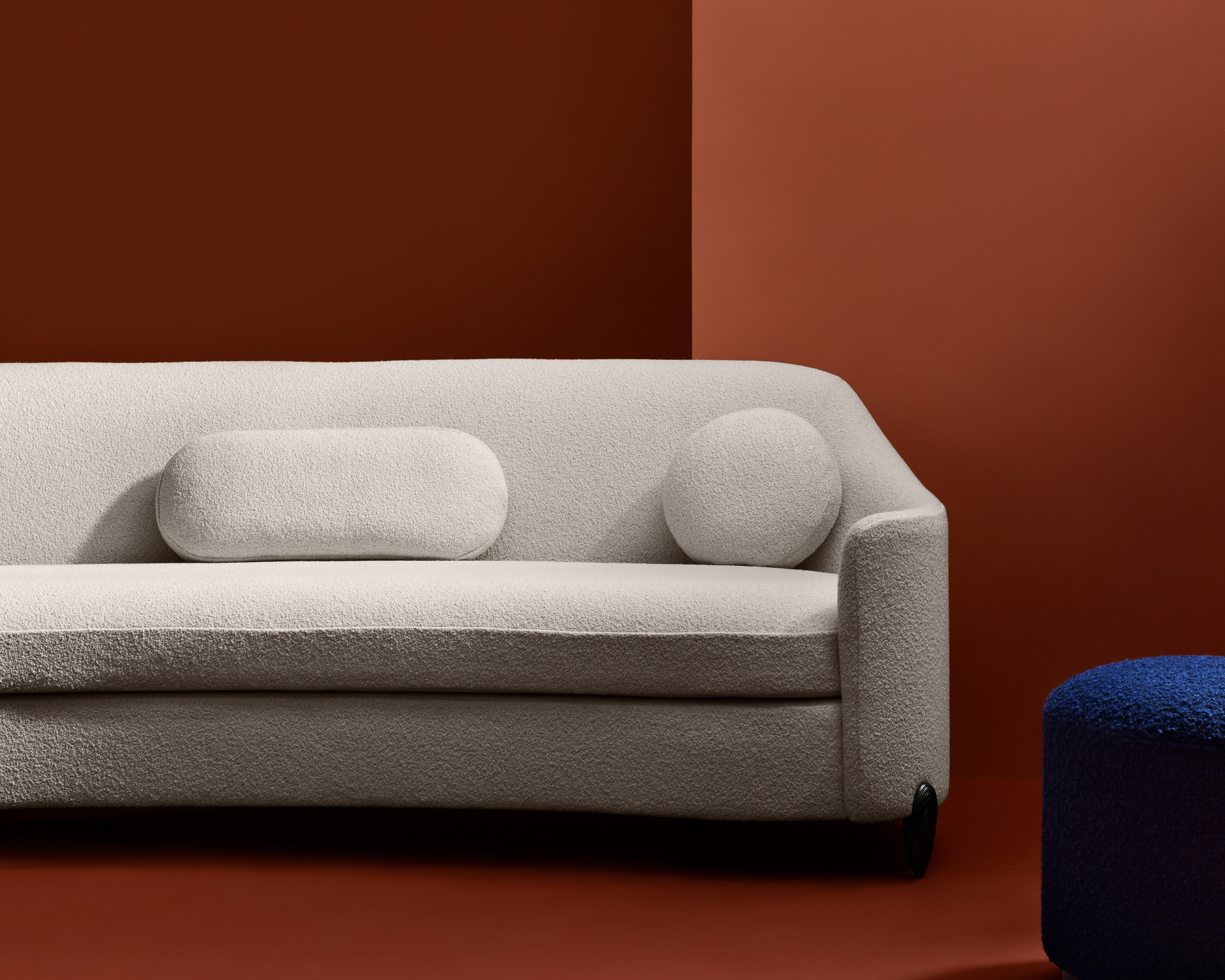
India’s design heritage might be most synonymous with colour, decoration and craft, but the country’s quieter, yet equally deep-rooted ties with modernist architecture are what the New Delhi-based design firm DeMuro Das hones in on with its latest furniture collection.
Named ‘Uncommon Threads’, DeMuro Das’ new collection comprises ten statuesque pieces, ranging from seating and side tables to center tables, a four-door cabinet and an embroidered folding screen that displays a bold curving pattern, inspired by Le Corbusier’s Capitol Complex buildings in Chandigarh. ‘The inspiration behind this collection and the techniques employed to realize it are hallmarks of our design and production process,’ says DeMuro Das co-founder Brian DeMuro, who leads the international design company together with Puru Das. ‘The Nila screen was created through a combination of contemporary precision laser cutting and traditional embroidery work, resulting in a uniquely timeless piece.’
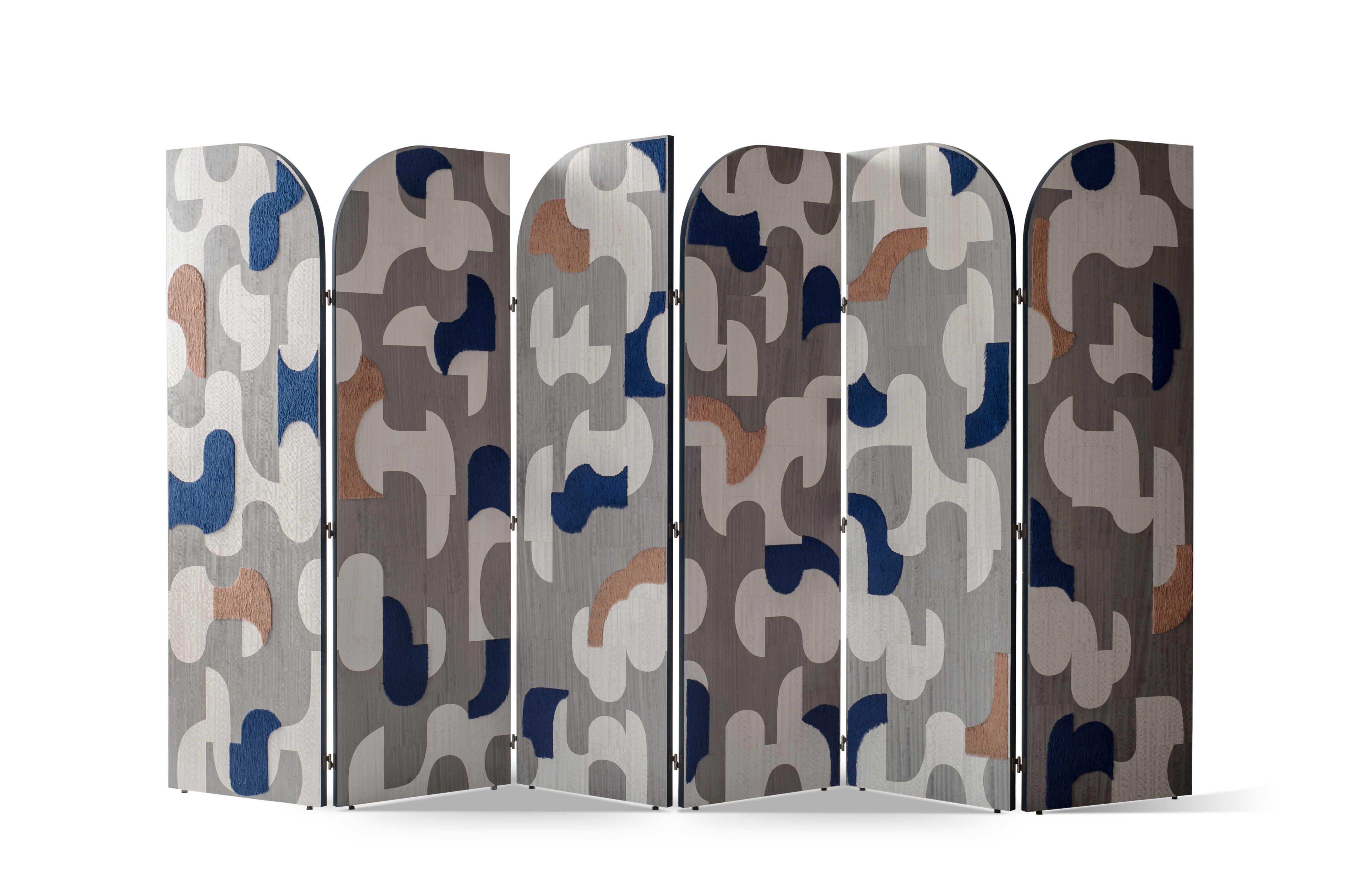
The Nila Screen, featuring an embroidered surface created in collaboration with French accessory designer Olivia Dar
The screen, one of the showpieces of the collection, has been produced in collaboration with Olivia Dar, a French accessory designer who formerly worked with Indophile Christian Lacroix, and features a deep blue tone that echoes the interior of the Neelam Cinema, another modernist structure in Chandigarh that was designed by architect Aditya Prakash, under the direction of Le Corbusier and Pierre Jeanneret.
This recasting of Indian Modernism continues to shape the collection through the combination of restrained lines with a rich attention to detail. A minimalist sofa, with soft undulating lines is underscored by slender, textured bronze legs that have been cast to resemble petrified sand, while the stout Emil center table pairs its Brutalistic form with a highly textured surface, created from hand-laying silver and gold pyrite to form an overlapping pattern that emphasises each material’s natural patina.
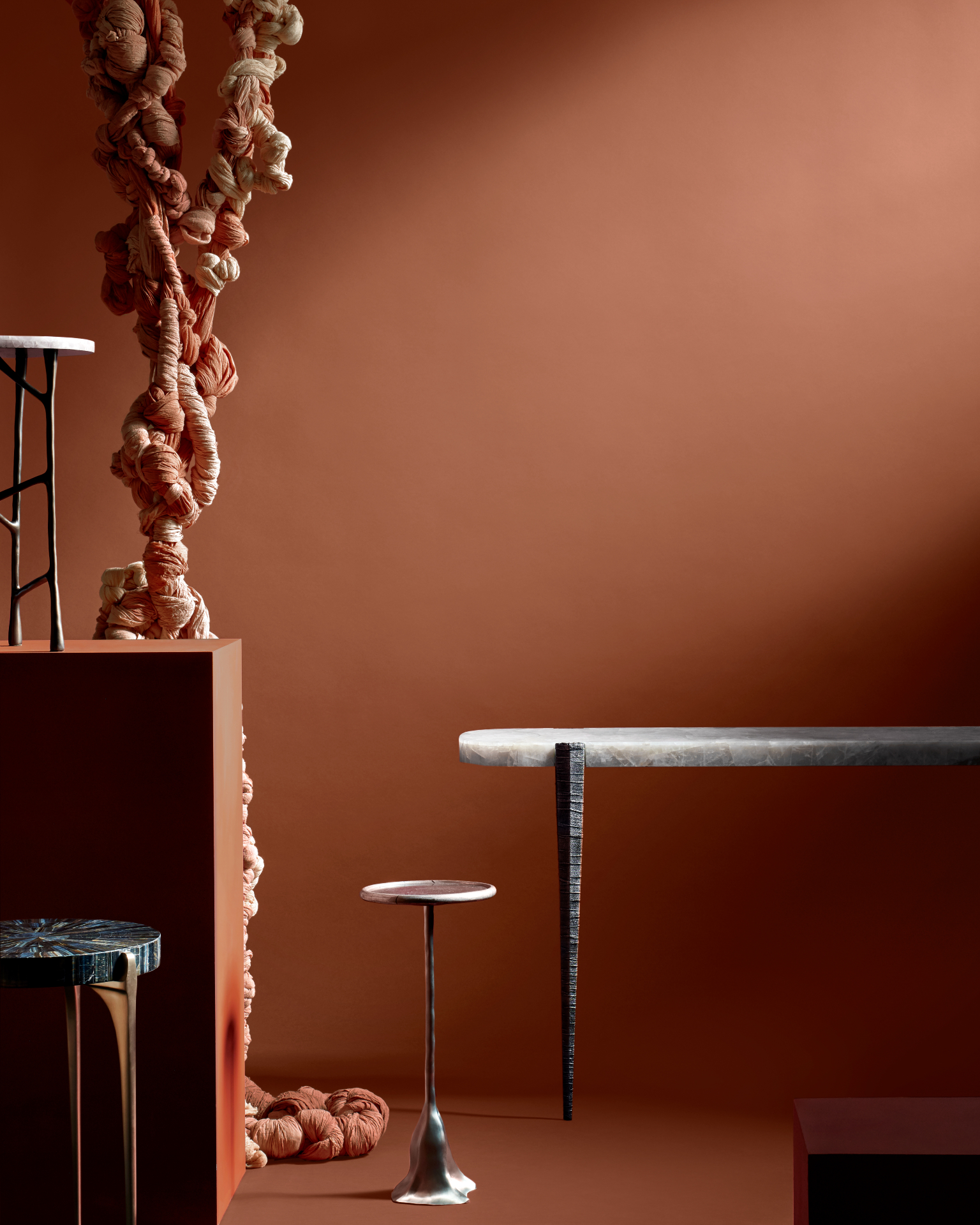
The Forma Side Table (top left), Tana Side Table (centre) and Bind Console (right).
The collection’s modernist aspects are counterweighted by examples of how DeMuro Das has used Indian craft traditions to create a contemporary appeal. The luxurious Nami cabinet pays tribute to sand-cast Dhokra sculptures, made by the nomadic communities of central India, and features decorative motifs made by using coils of string that have been cast into its solid bronze doors.
Poetic, hand wrought and brimming over with narrative, the collectible pieces exude a contemporary, reconfigured beauty that is still steeped in Indian tradition.
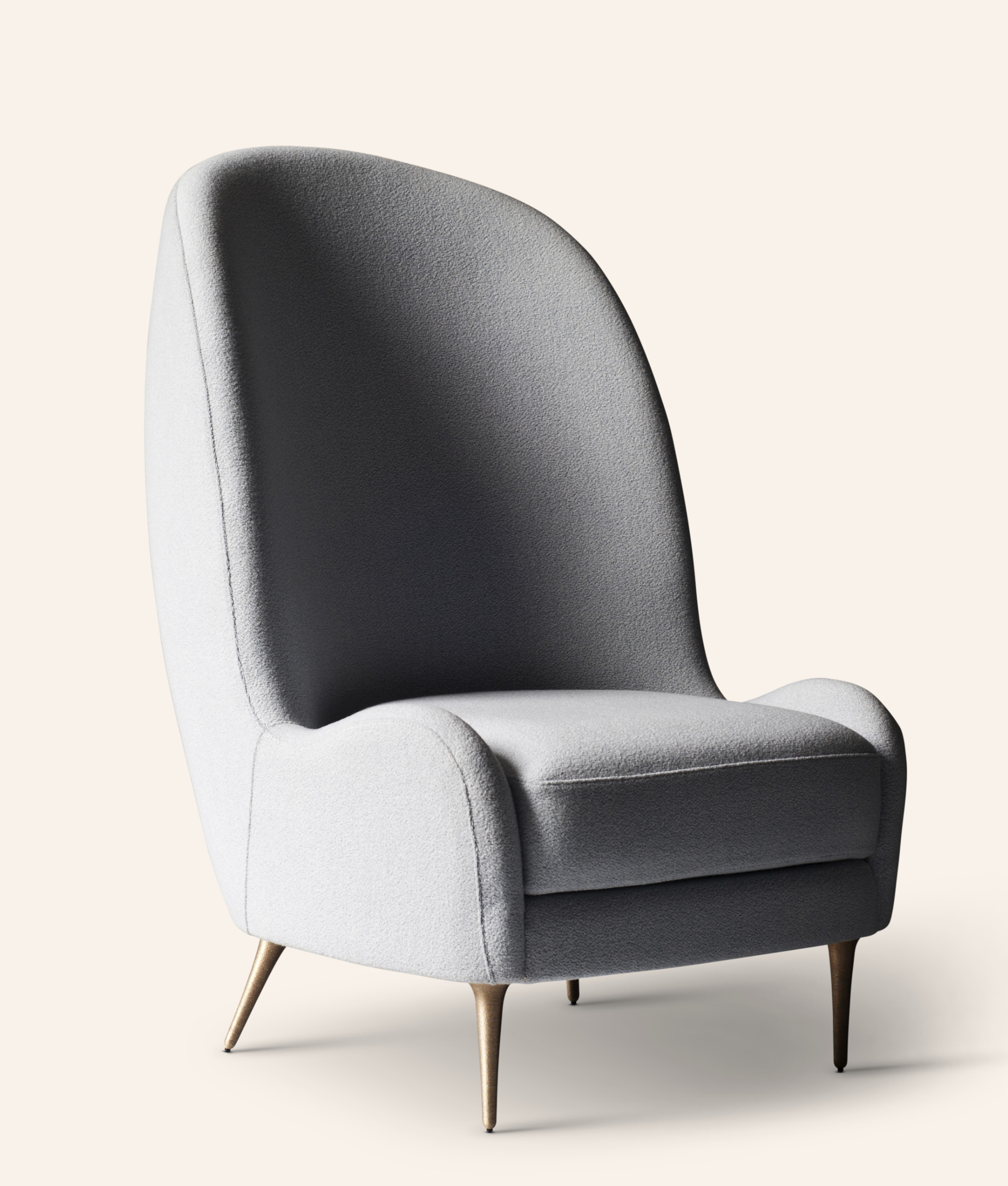
The Aril Side Chair
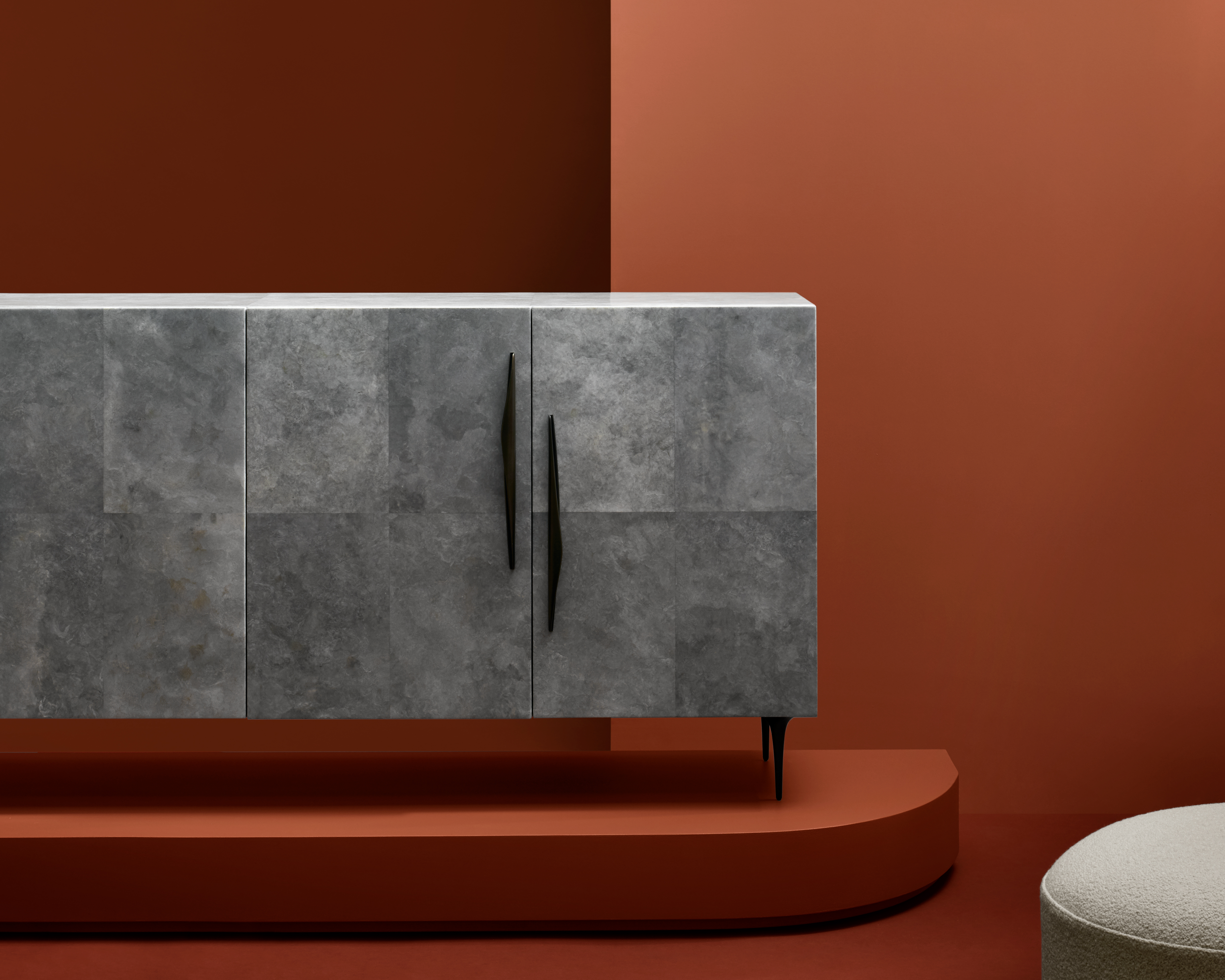
A cabinet from the Uncommon Threads collection
INFORMATION
Wallpaper* Newsletter
Receive our daily digest of inspiration, escapism and design stories from around the world direct to your inbox.
Pei-Ru Keh is a former US Editor at Wallpaper*. Born and raised in Singapore, she has been a New Yorker since 2013. Pei-Ru held various titles at Wallpaper* between 2007 and 2023. She reports on design, tech, art, architecture, fashion, beauty and lifestyle happenings in the United States, both in print and digitally. Pei-Ru took a key role in championing diversity and representation within Wallpaper's content pillars, actively seeking out stories that reflect a wide range of perspectives. She lives in Brooklyn with her husband and two children, and is currently learning how to drive.
-
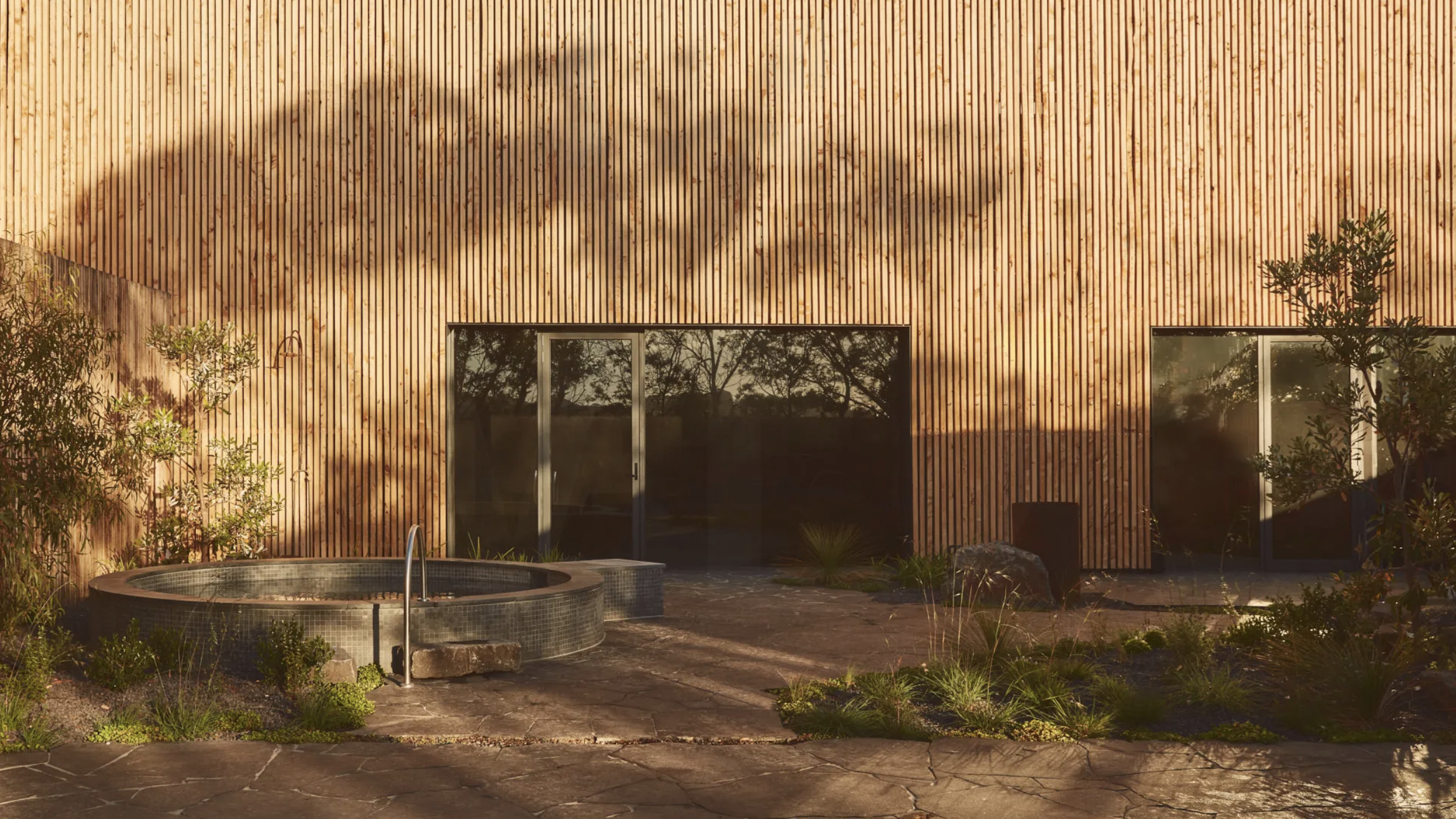 Australian bathhouse ‘About Time’ bridges softness and brutalism
Australian bathhouse ‘About Time’ bridges softness and brutalism‘About Time’, an Australian bathhouse designed by Goss Studio, balances brutalist architecture and the softness of natural patina in a Japanese-inspired wellness hub
By Ellie Stathaki
-
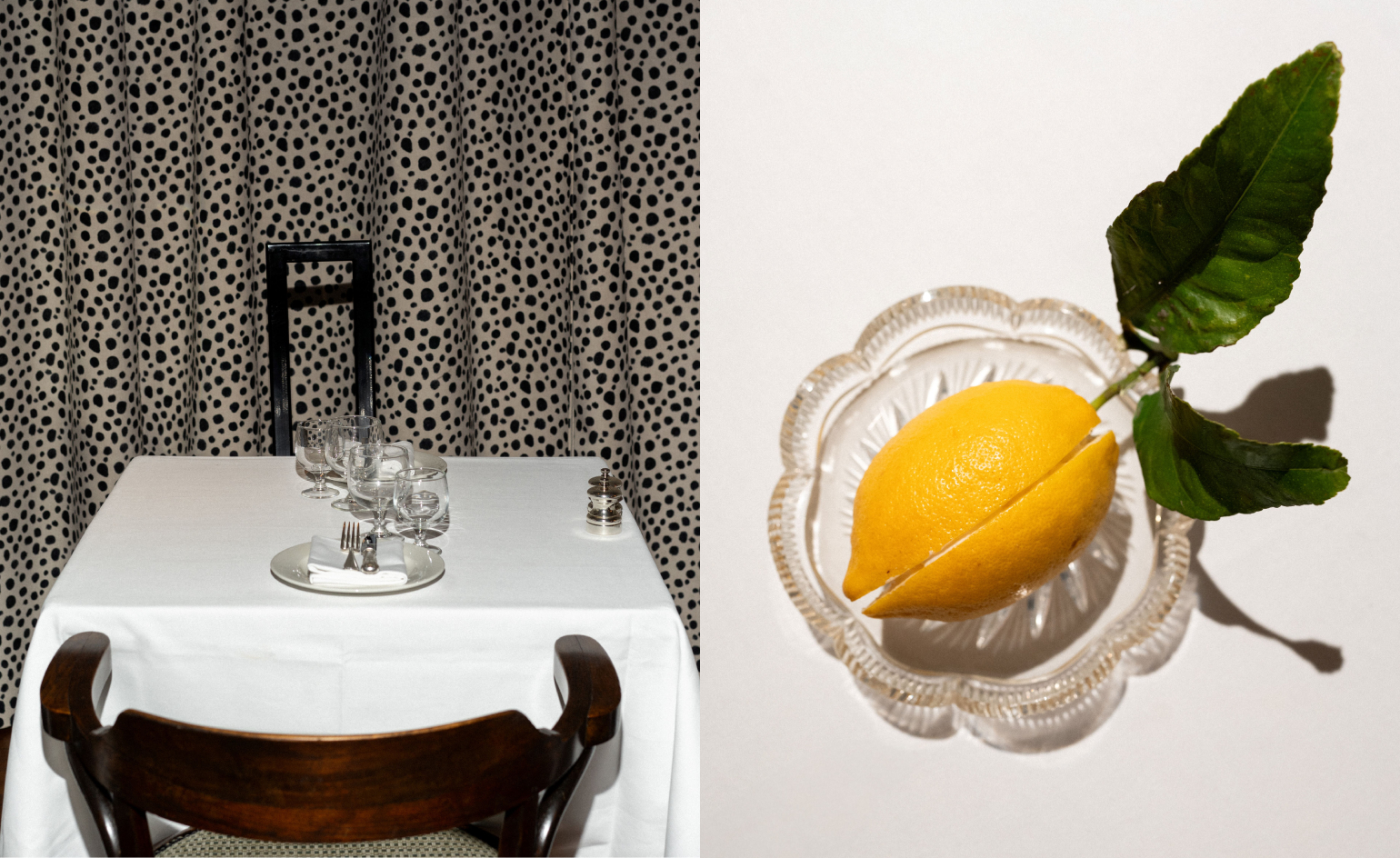 Marylebone restaurant Nina turns up the volume on Italian dining
Marylebone restaurant Nina turns up the volume on Italian diningAt Nina, don’t expect a view of the Amalfi Coast. Do expect pasta, leopard print and industrial chic
By Sofia de la Cruz
-
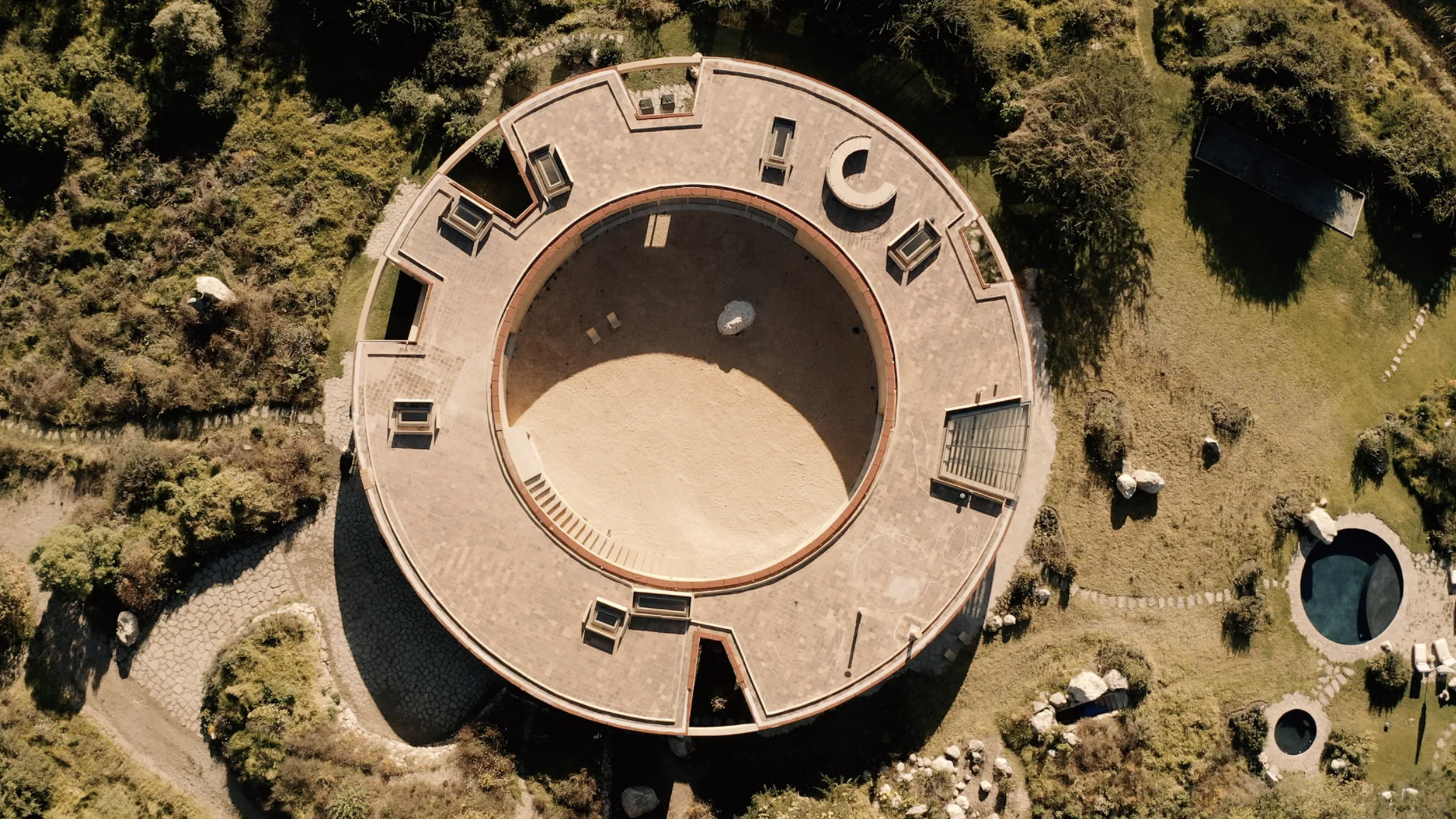 Tour the wonderful homes of ‘Casa Mexicana’, an ode to residential architecture in Mexico
Tour the wonderful homes of ‘Casa Mexicana’, an ode to residential architecture in Mexico‘Casa Mexicana’ is a new book celebrating the country’s residential architecture, highlighting its influence across the world
By Ellie Stathaki
-
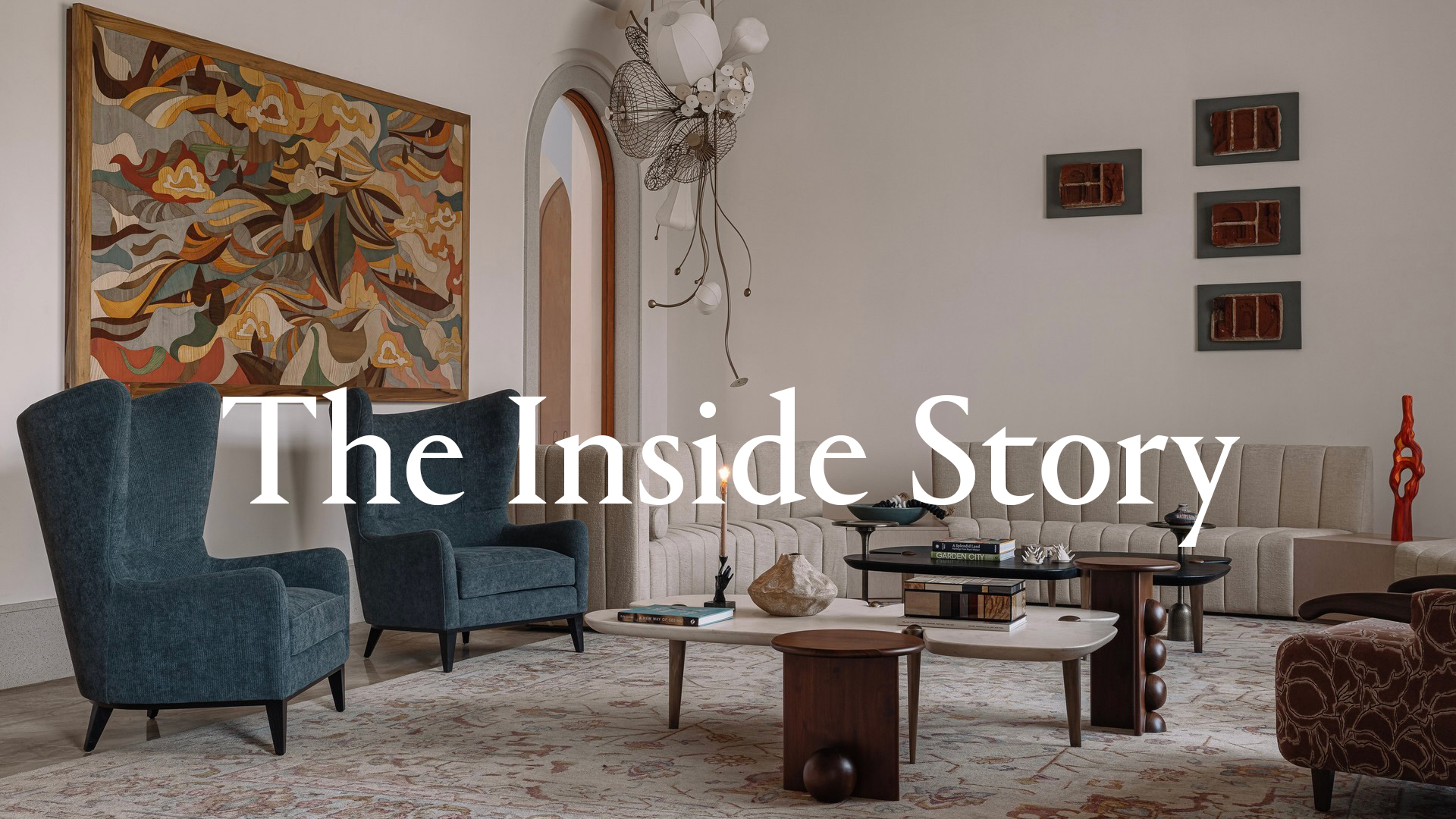 This Gujarat home by MuseLAB is a sculptural, textural delight
This Gujarat home by MuseLAB is a sculptural, textural delightA study in materiality, this home in Gujarat, India layers idiosyncratic details while staying true to its provenance, and is the latest focus of The Inside Story, our series spotlighting intriguing and innovative interior design
By Anna Solomon
-
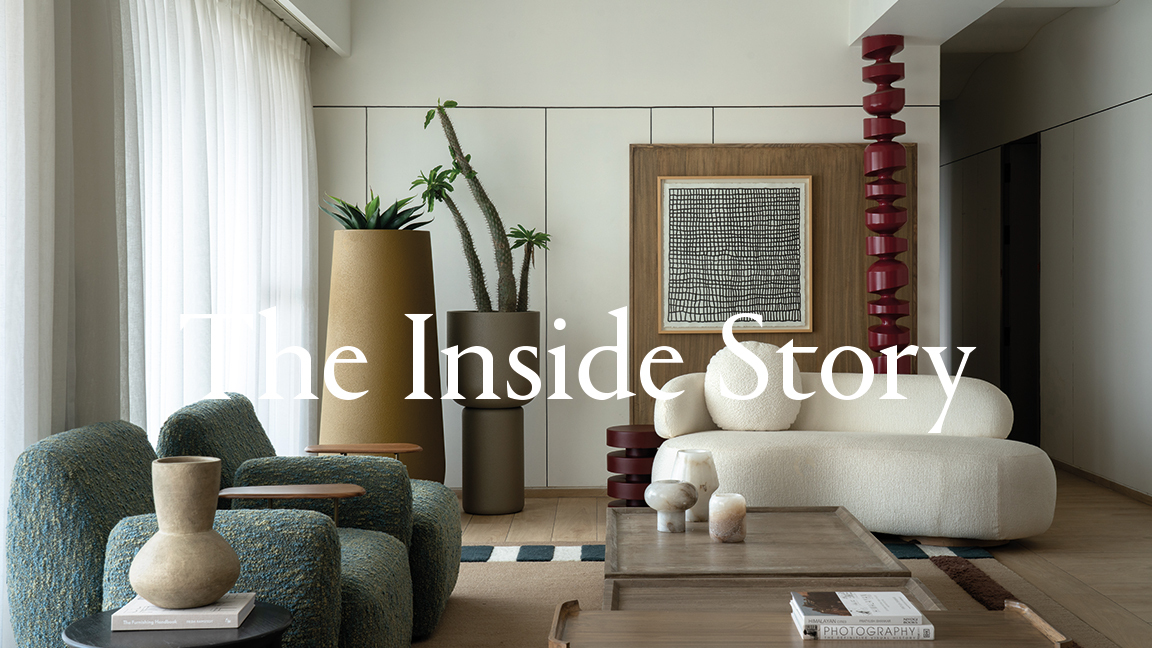 This multigenerational Delhi home plays with colour and texture in unexpected ways
This multigenerational Delhi home plays with colour and texture in unexpected waysWelcome to the Wallpaper* series, The Inside Story, where each week we spotlight an intriguing, exciting or innovative interior. This apartment, curated by Studio Jane Designs, finds ever-creative ways to meet the needs of the three generations that live under its roof
By Anna Solomon
-
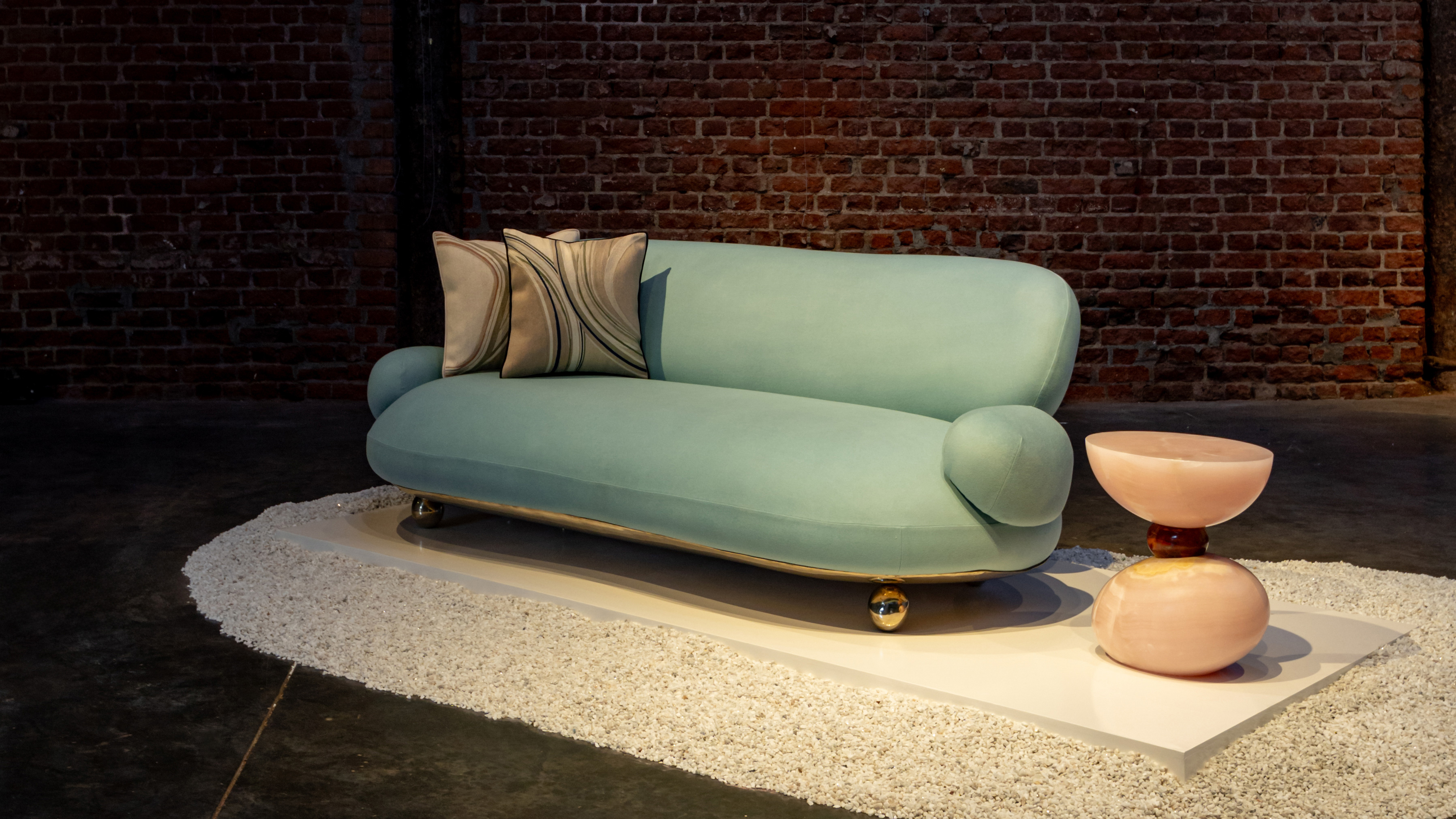 Curvature, cantilevers and cashmere: Mumbai-based designer Rooshad Shroff on his new furniture collection
Curvature, cantilevers and cashmere: Mumbai-based designer Rooshad Shroff on his new furniture collectionRooshad Shroff’s new furniture collection Balance is a masterclass in structural luxury
By Emily Wright
-
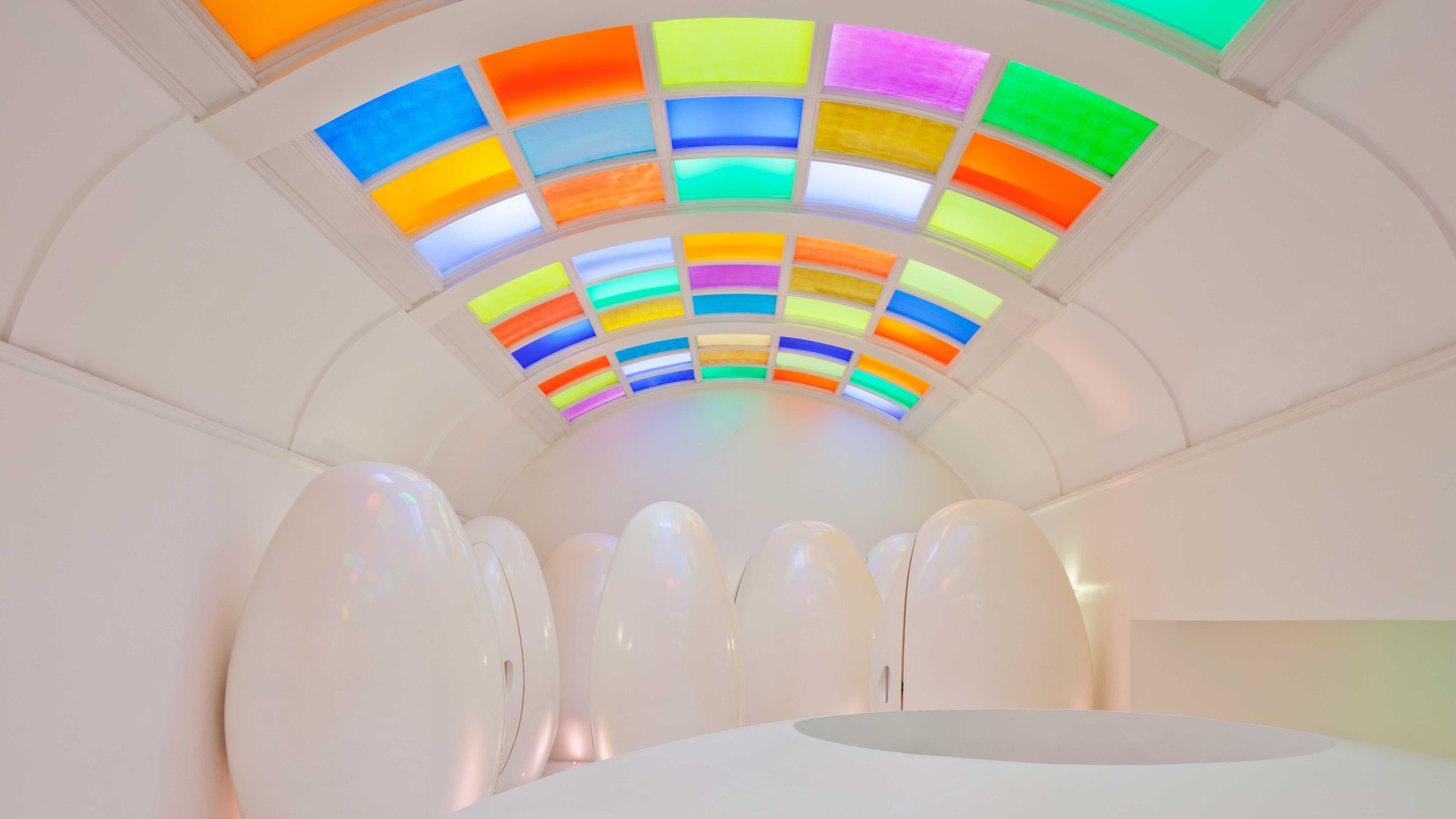 Sketch is 20: a design history of London’s ultimate entertaining destination
Sketch is 20: a design history of London’s ultimate entertaining destinationA visual history of Sketch: from the world-famous pod loos to India Mahdavi’s Gallery, we chart the evolution of the London restaurant’s inspiring collaborations and colourful makeovers
By Rosa Bertoli
-
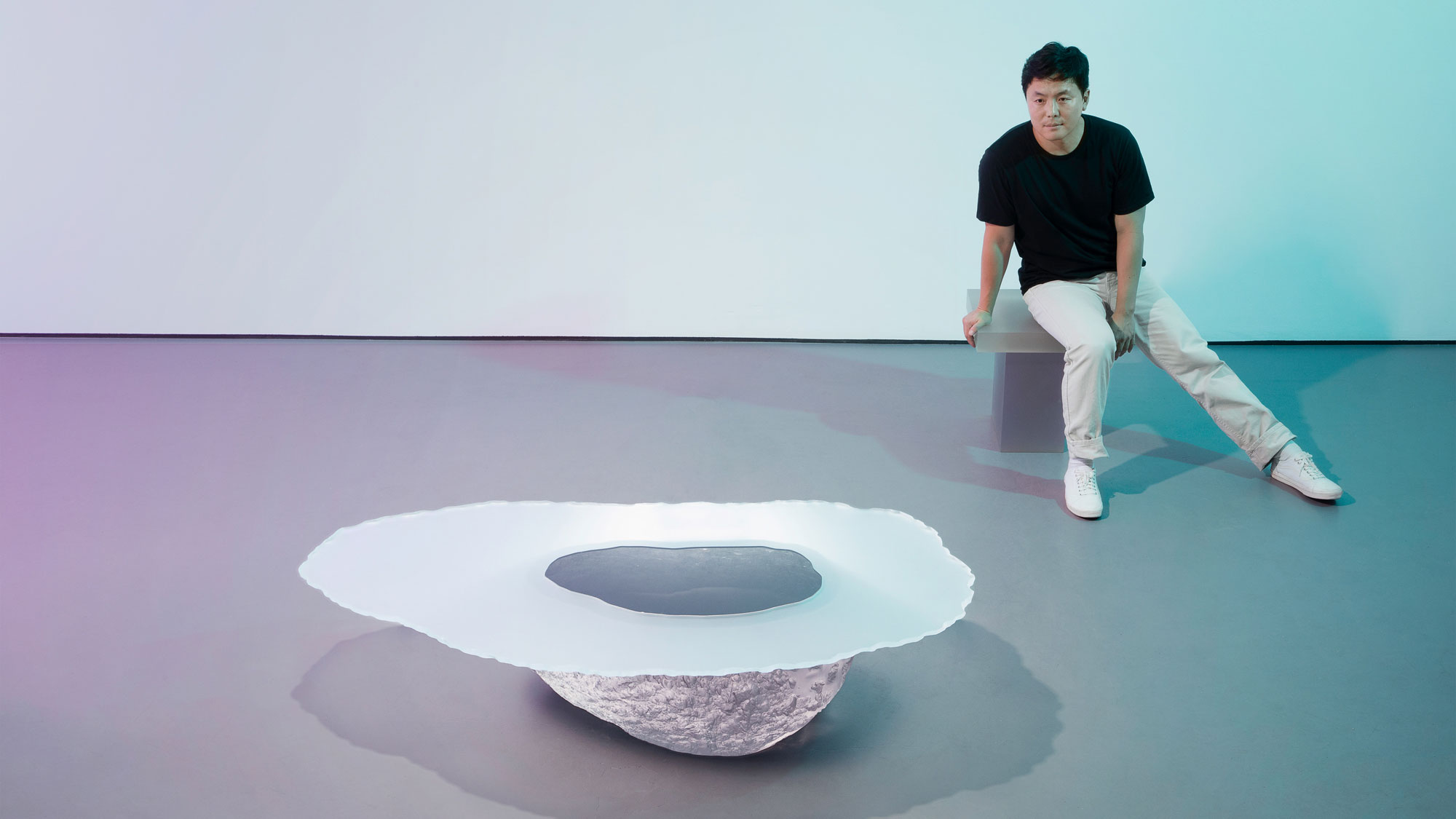 Wonmin Park’s latest works combine resin and glass
Wonmin Park’s latest works combine resin and glassCarpenters Workshop Gallery presents ‘On Earth’ (20 October 2022 - 7 January 2023), an exhibition of works by Wonmin Park exploring new material combinations
By TF Chan
-
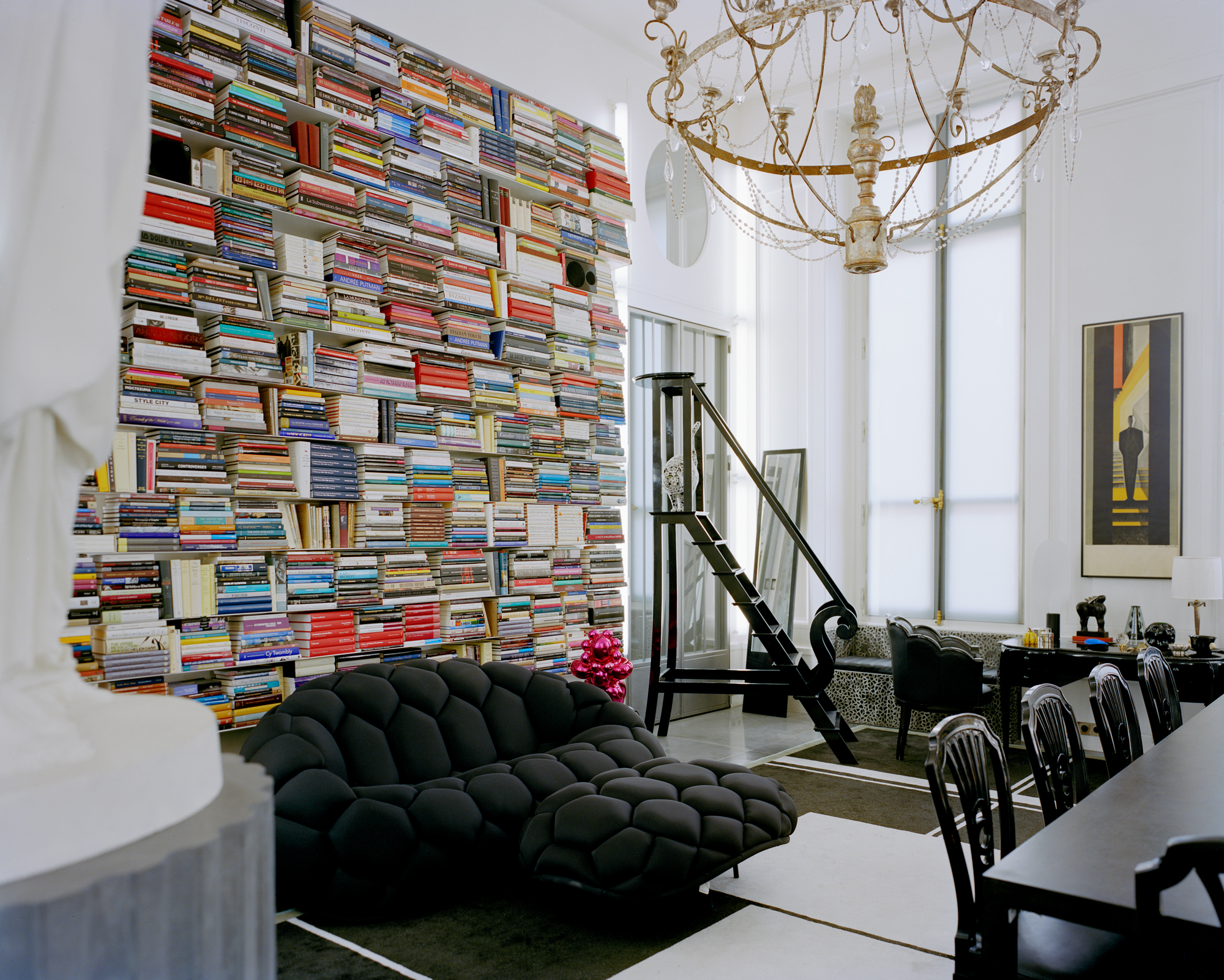 Karl Lagerfeld’s design collection goes on sale at Sotheby’s
Karl Lagerfeld’s design collection goes on sale at Sotheby’sAs the estate of Karl Lagerfeld went under the hammer at Sotheby’s in 2021, Wallpaper* contributing editor Nick Vinson took an exclusive tour of Lagerfeld’s never-seen-before Paris apartment at 8 rue des Saint-Pères. Revisit the tour…
By Nick Vinson - Art Direction
-
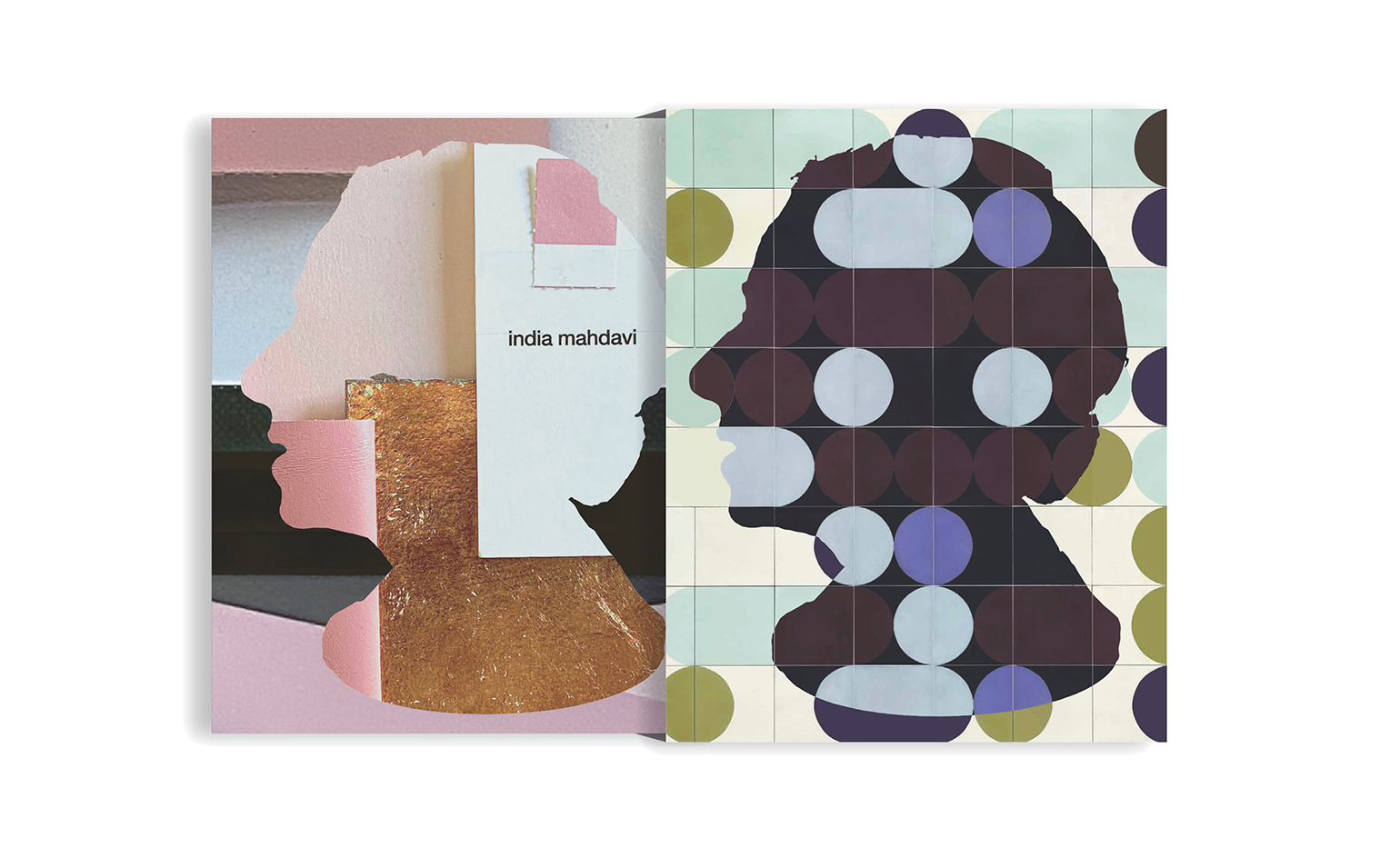 India Mahdavi monograph reveals a life in full colour
India Mahdavi monograph reveals a life in full colourAn ode to the power of colour, India Mahdavi’s first monograph shines the spotlight on the designer’s trendsetting interiors and signature pieces
By Léa Teuscher
-
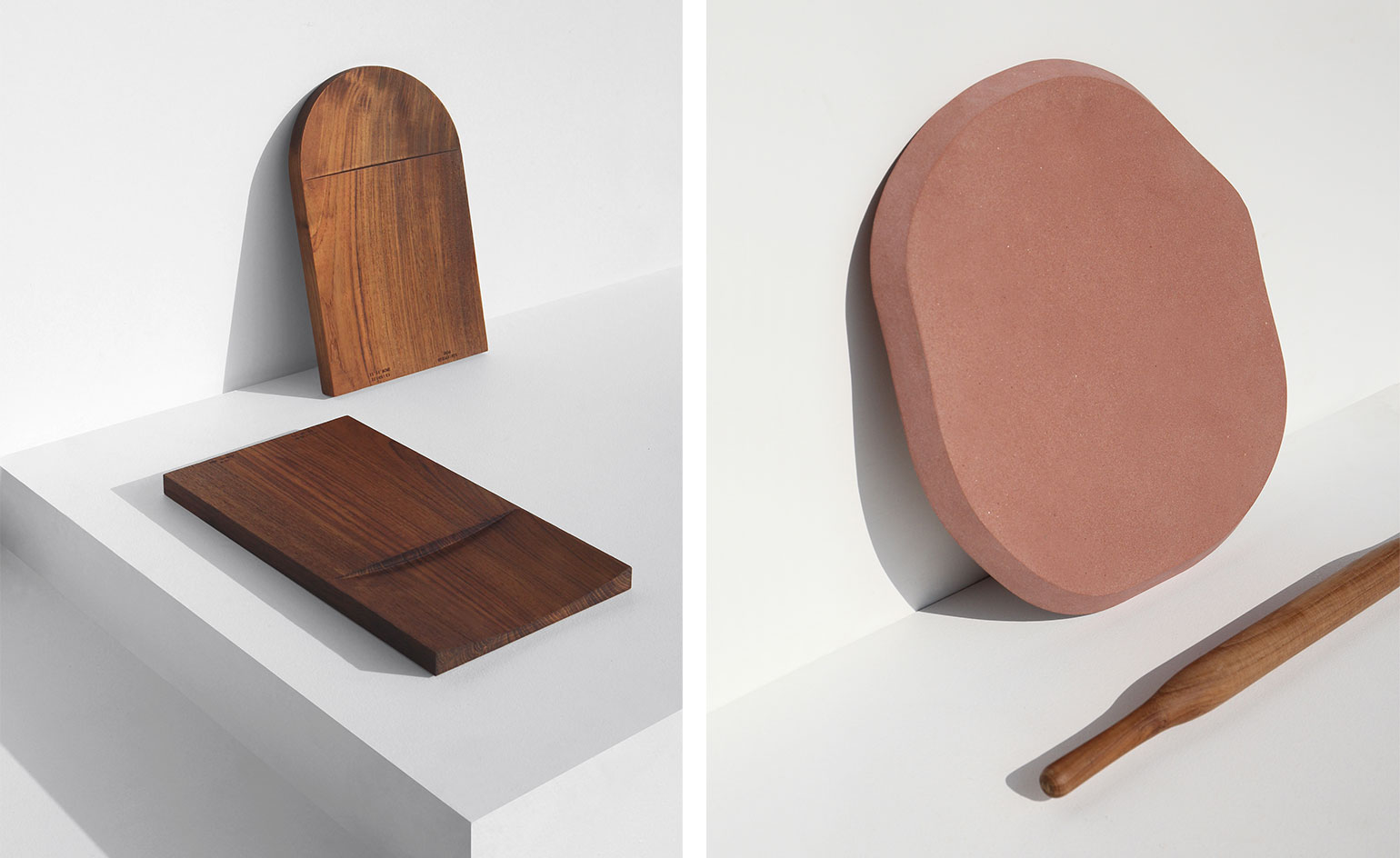 Indian kitchen utensils revisited with a contemporary aesthetic
Indian kitchen utensils revisited with a contemporary aestheticDesigners Nikita Bhate and Pascal Hien present SĀR, a new brand of sculptural everyday objects inspired by Indian rituals and cooking traditions
By Rosa Bertoli